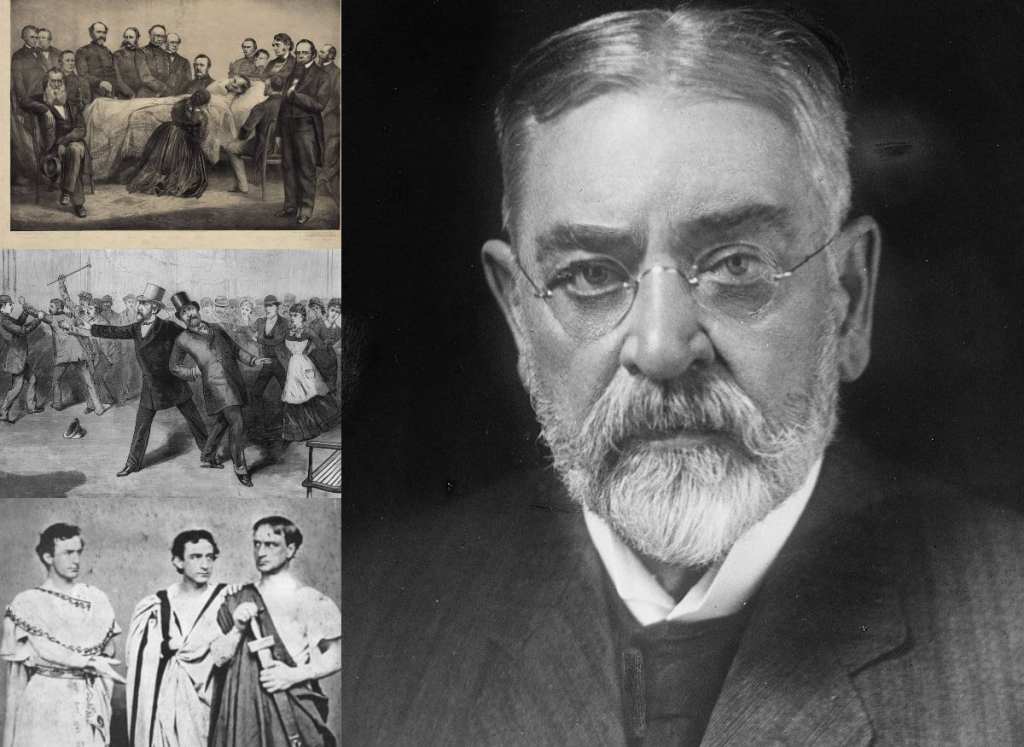One might argue that, as the only child of Abraham Lincoln to survive into adulthood and the only one who lived to see the 20th century, Robert Todd Lincoln lived a somewhat charmed life.
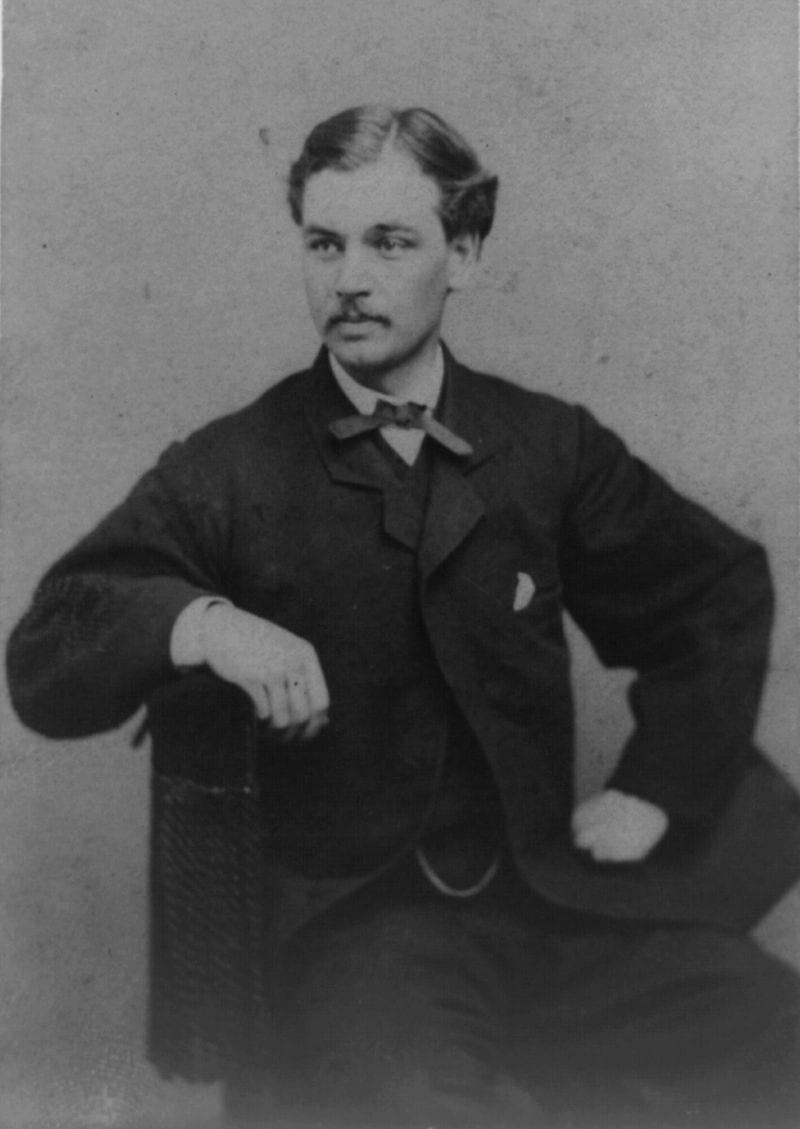
Photo Credit: US Library of Congress/John Goldin & Co
He was the son of a President, after all, and, though he was of age during the Civil War, his mother wouldn’t let him join the Army.
So he was also not one of the 750,000 casualties of that war.
And when his mother finally relented in the final few months of the war, his father wrote a letter and landed him a gig under Ulysses S. Grant.
So he basically started right at the top, and he was there for all the celebration-y parts, like when Robert E. Lee surrendered at Appomattox:
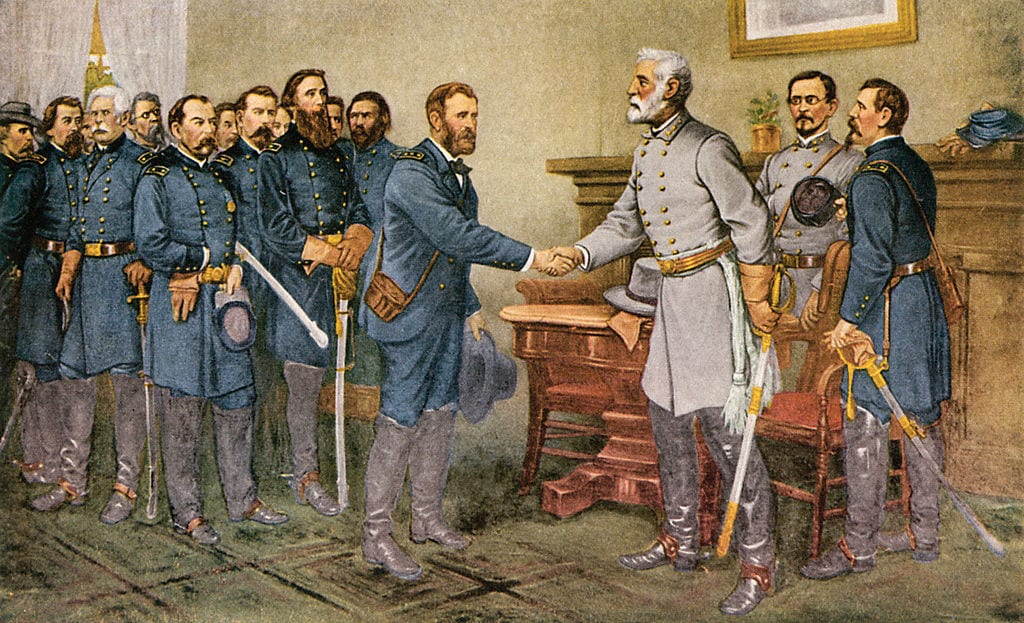
Photo Credit: Public Domain/Thomas Nast
That’s kinda like driving the 26 and walking the .2 of a marathon and getting a medal for it.
So I could see how one might think the dude really lucked out.
But once you start digging into the details of his life, it starts to feel a bit more cursed than charmed.
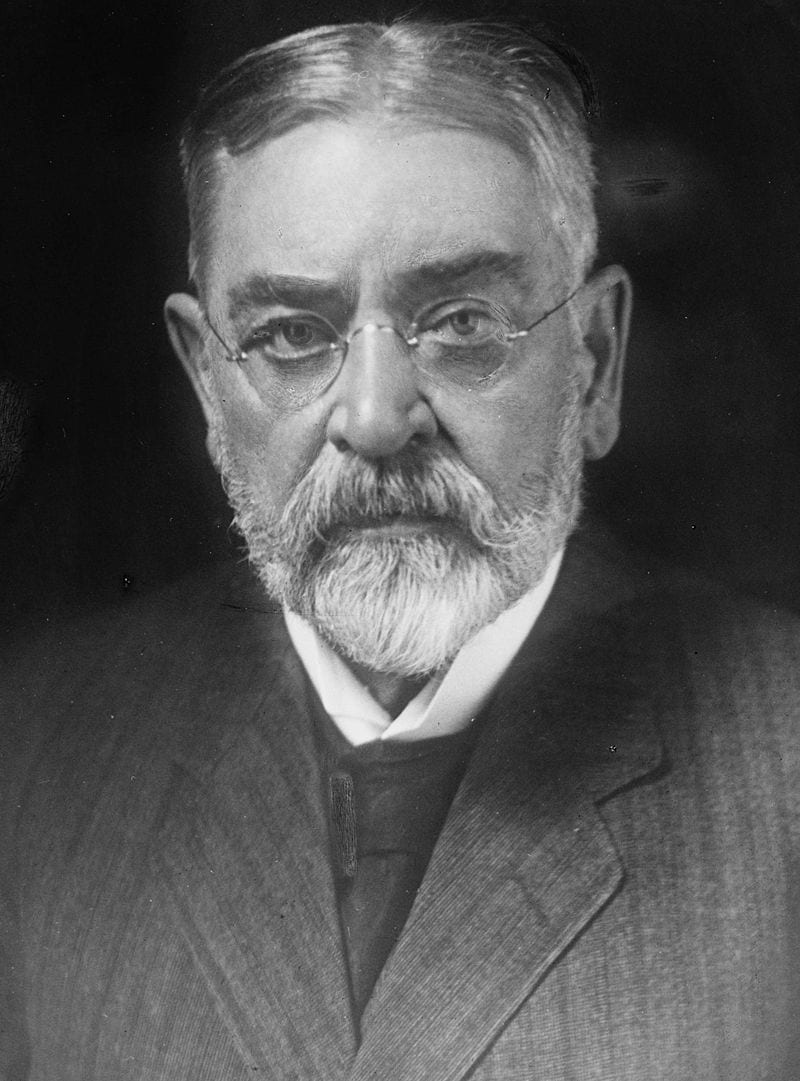
Photo Credit: Public Domain/US Library of Congress
For instance, let’s just start with that earlier part about his being the only one of the Lincoln children to live past 18.
This also means he had to endure the deaths of all three of his younger siblings:
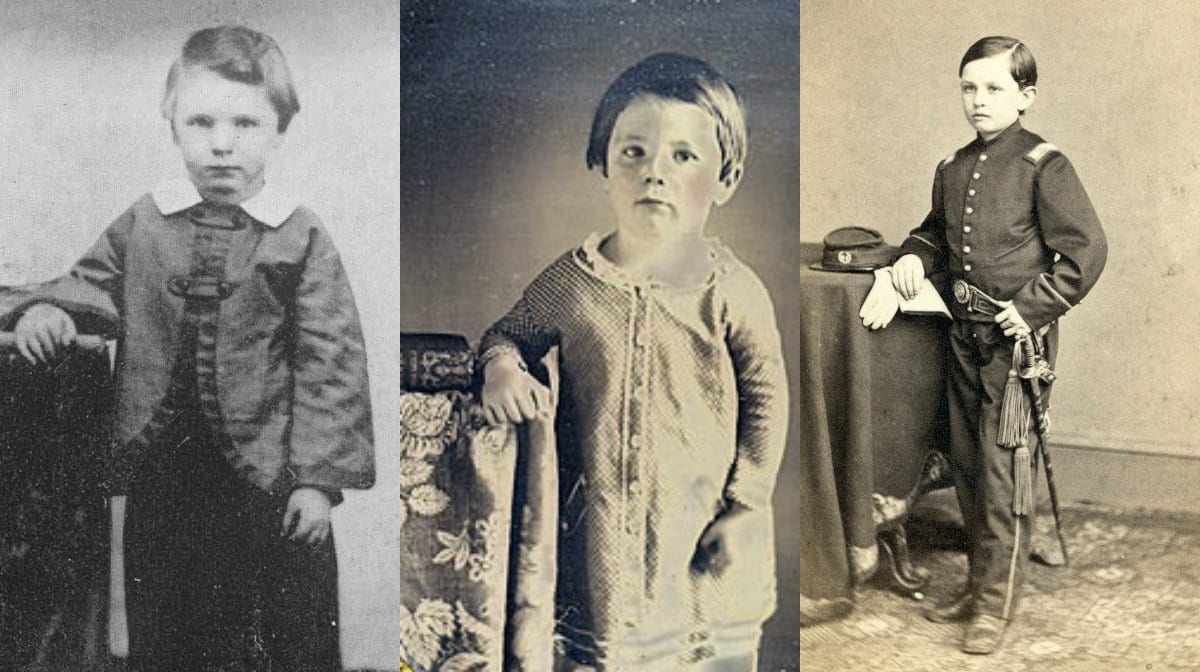
Photo Credit: did you know?/Public Domain
On a now infamous evening in 1865, after the war, Robert was invited to attend Our American Cousin with his parents after returning from his super-brief war stint, but he wanted to rest, so he stayed home.
The Lincolns saw each other later on that night/morning, but it wasn’t on the best of terms:

Photo Credit: US Library of Congress/Public Domain/ A. Brett & Co.
He avoided being shot like his dad or stabbed like the guy who went in his place that night, but that’s not what I’d call lucky.
Lucky was how – right before Robert joined the Army, and less than a year before the assassination of his father – a stranger saved Robert from slipping off a train, an incident he recalled in 1909:
…the train began to move, and by the motion I was twisted off my feet, and had dropped somewhat, with feet downward, into the open space, and was personally helpless, when my coat collar was vigorously seized and I was quickly pulled up and out to a secure footing on the platform.
Upon turning to thank my rescuer I saw it was Edwin Booth, whose face was of course well known to me, and I expressed my gratitude to him, and in doing so, called him by name.
You might recognize that last name: Booth.
Edwin Booth was the brother of President Lincoln’s assassin, John Wilkes Booth. At the time, the Booth brothers were all well-known actors.
That’s John in the middle:
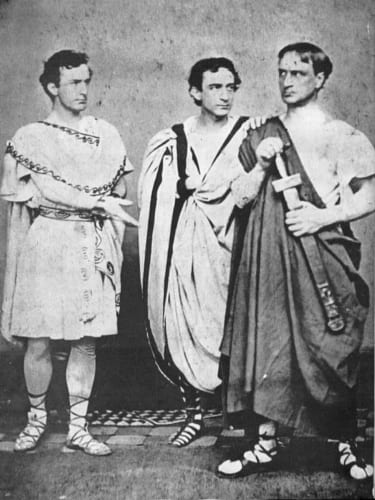
Photo Credit: Brown University/Public Domain
Without Edwin (on the right), Robert Todd Lincoln might have died before his father and brother.
But he lucked out and survived, so after his father’s assassination, Robert took care of both his mother and his teenage brother, Tad. Tad, however, died about six years later at the age of 18, and Robert eventually had his mother committed to a state asylum.
Sure, Mary Todd Lincoln might have suffered from bipolar disorder, but a great many people cope with this outside of an institution. I can’t find too many ways, in fact, that Robert doesn’t come off like a prick in this situation.
He even paid for both sides’ lawyers in the case to lock his mother up, and the one he hired for Mary presented no evidence in her defense.
As it turns out, however, she was sane enough to engineer her own release by writing letters to activists and publicly shaming Robert in a letter to the editor of the Chicago Times.
The whole situation meant that Robert and his mother were estranged pretty much until she died in 1882, though there seems to be an account of them potentially reconciling when he was nominated for President in 1880.
He didn’t accept the nomination, but he did end up working for the eventual President, James Garfield:
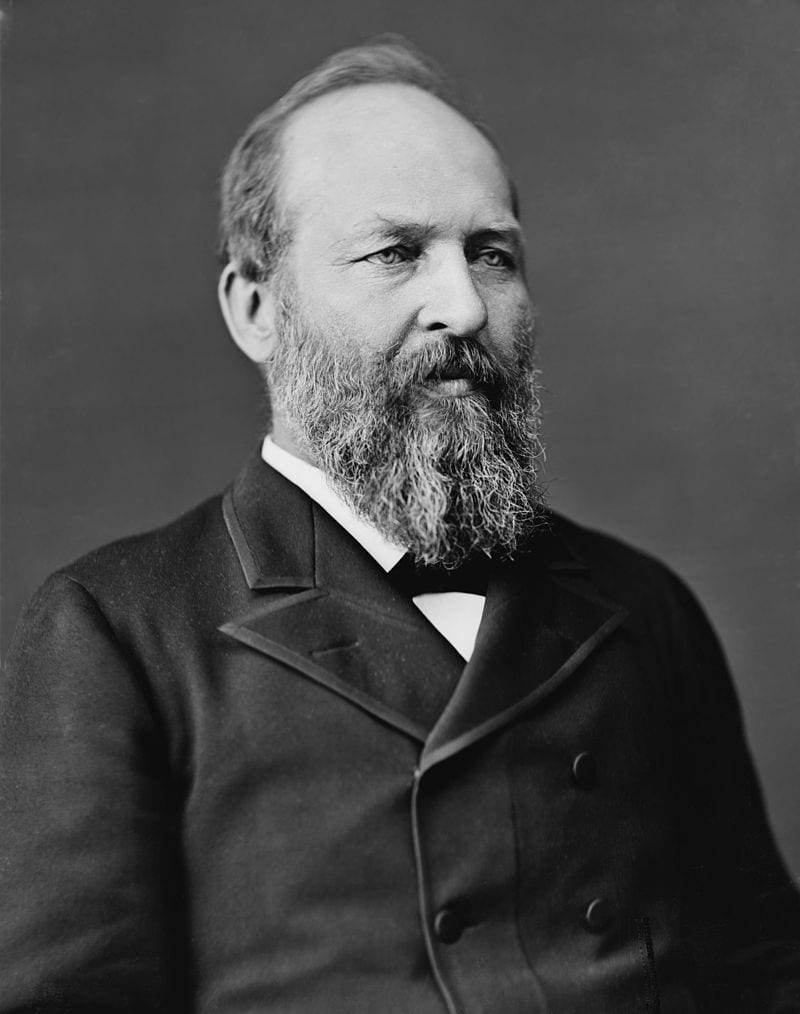
Photo Credit: US Library of Congress
Of course, you might recall that Garfield didn’t stay in office very long:
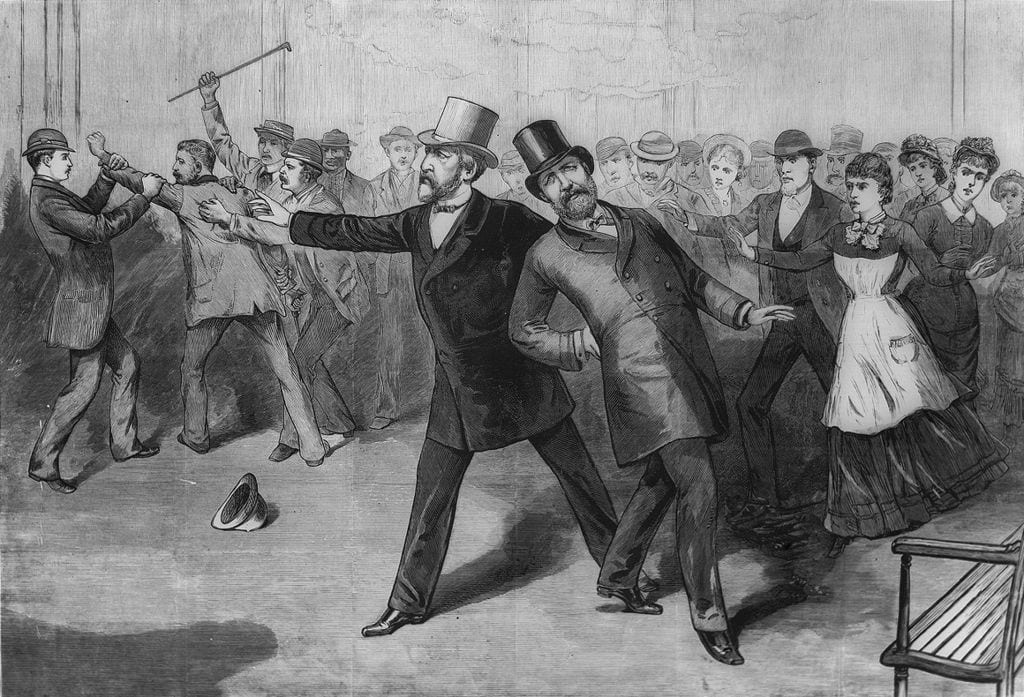
Photo Credit: Public Domain
President Garfield was assassinated on July 2, 1881 by a dude who was pissed that he didn’t get to be ambassador to France.
Unlike his father’s assassination, Robert Lincoln saw this one with his own eyes.
Robert was running late, and rushed off of the train to arrive at the very moment the President was shot.
And, as with his father’s assassination, Lincoln was by Garfield’s bedside as he lay dying.
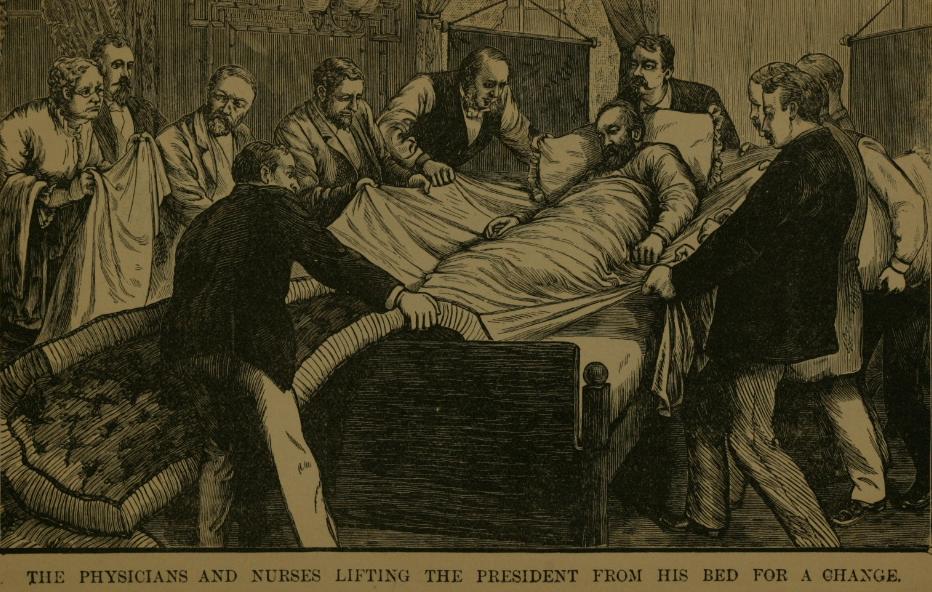
Photo Credit: James Dabney McCabe/Public Domain
Lincoln is reported to have said the following while standing over Garfield:
“How many hours of sorrow I have passed in this town…”
You’d think that’d be enough.
But it’s not the end of the Robert Todd Lincoln story.
The Grim Reaper was not done pestering this dude.
In 1901, Lincoln accepted an invitation from then President William McKinley to attend the Pan-American Expo in Buffalo, New York.
I’ll give you three guesses, but I bet you only need one:
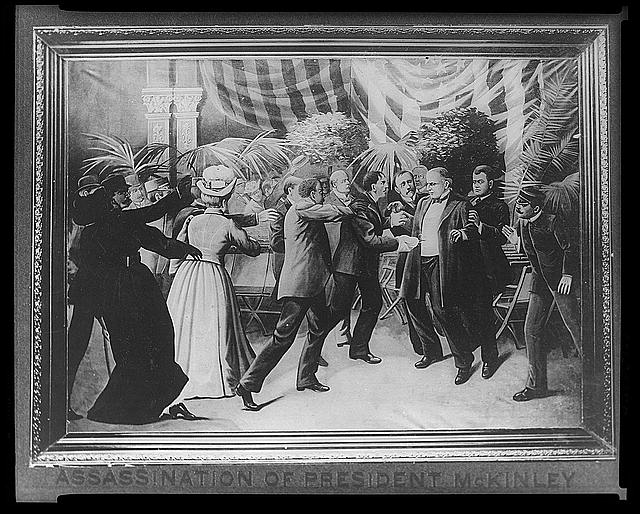
Photo Credit: US Library of Congress
Now, Lincoln didn’t see this one happen, but damn…
If I were a sitting US President, I wouldn’t have invited Robert Todd Lincoln to anything, ever.
Yet, later presidents still invited him to things.
Thankfully, Lincoln had caught on to his own status as Presidential Omen, and was reported to reply with:
No, I’m not going, and they’d better not ask me, because there is a certain fatality about presidential functions when I am present.
Agreed, Robert. Agreed…
We know you can choose a lot of sites to read, but we want you to know that we’re thankful you chose Did You Know.
You rock! Thanks for reading!

